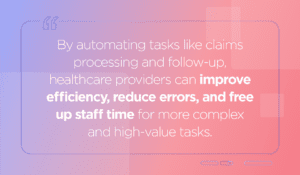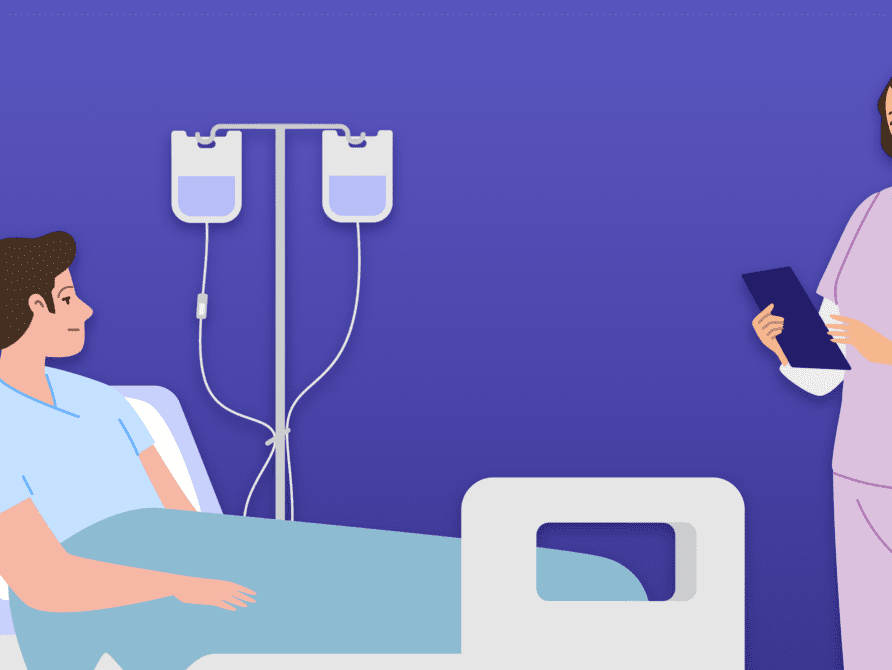Article
Overwhelming operating expenses? Consider robotic process automation.
Financial stability is critical to a hospital’s ability to serve its community and make investments back into the organization. However, maintaining positive margins has become even more difficult for providers as operating expenses have increased with inflation, supply chain issues and other market drivers. In fact, according to Kaufman Hall research, 2022 was the worst financial year for US hospitals since the pandemic began.
Altera Digital Health understands these challenges and is looking toward the summit of healthcare by providing solutions that work for organizations, not against them. Our partnerships have shown that organizations are increasingly turning to technology like robotic process automation (RPA) to improve efficiency and reduce costly errors, particularly within the revenue cycle. Here are a few things to consider if your organization is exploring RPA.
 The ROI with RPA
The ROI with RPA
RPA is a technology that uses software robots to automate repetitive and rules-based tasks. In healthcare, RPA can be applied to revenue cycle management (RCM) processes such as claims processing, insurance verification and denial management. And with the increasing volume of claims and the complexity of insurance billing and reimbursement, RPA has the potential to make RCM more manageable in a scalable way.
Several US healthcare institutions have reported significant cost savings and other benefits from implementing RPA in their RCM processes. Research from KPMG indicates that hospitals and health systems could reduce revenue cycle costs by 25–40% with this technology.
By automating tasks like claims processing and follow-up, healthcare providers can improve efficiency, reduce errors and free up staff time for more complex and high-value tasks. This can ultimately lead to cost savings and improved financial performance across the organization.
Putting RPA into practice
With these benefits in mind, it is also important to note that RPA is not a one-size-fits-all solution. Each healthcare provider has unique needs and challenges, so the implementation of RPA should be tailored to address both. Healthcare providers should conduct a thorough assessment of their RCM processes to determine which tasks are the most time-consuming and error-prone and would benefit most from automation. They should also consider the cost and resources required to implement RPA, including staff training and support.
Additionally, healthcare providers should be aware of potential challenges in implementing RPA, such as data security and privacy concerns, potential errors in the automation process and resistance to change from staff. Organizations should work closely with their IT departments and RPA vendors to address these challenges and ensure a smooth implementation process.
Altera is a leading provider of healthcare technology solutions, including RPA, for revenue cycle management. With our deep understanding of healthcare operations and technology expertise, we can help healthcare organizations elevate their RCM processes and implement RPA solutions that are right for them.
Learn more about how your organization can leverage bot technology and other solutions to achieve financial stability here.













